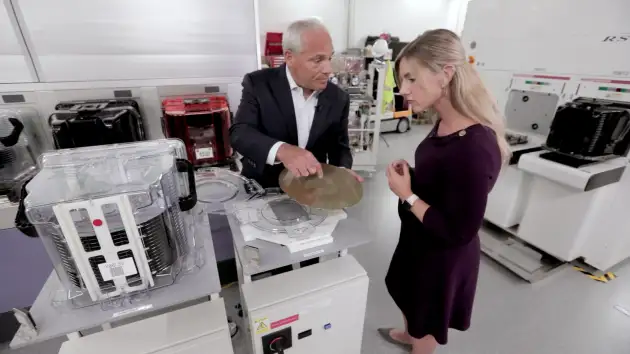How GlobalFoundries aims to remain world’s

Nearly every connected device is powered by it quietly.
GlobalFoundries CEO Thomas Caulfield told that every electronic device in your house contains at least one GlobalFoundries chip.
From smartphones and cars to smart speakers and Bluetooth-enabled dishwashers, GlobalFoundries chips are everywhere. The chips are also used in servers that run generative AI models, a market that has surpassed a $1 trillion market cap and is forecasting 170% sales growth this quarter.
GlobalFoundries doesn’t make the powerful graphics processing units (GPUs) used in generative AI models like ChatGPT. The company makes chips that manage power, connect to displays, or enable wireless connections instead.
“AI is the catalyst for our industry to double in the next eight years, and GF will have its share of that opportunity, if not more.” says Caulfield.
GlobalFoundries took a bold step away from leading-edge chips five years ago, exiting a race won by Taiwan Semiconductor Manufacturing Company.
GlobalFoundries finds itself outside the geopolitical crosshairs as TSMC’s dependence on China grows, and the U.S. and China play technological tug-of-war over export controls. In Singapore, Germany, France, and upstate New York, the company has invested about $7 billion in expanding production. visited GlobalFoundries’ fabrication plant in Malta, New York, to see how the company plans to stay on top while developing the older chips still needed for everyday devices.
